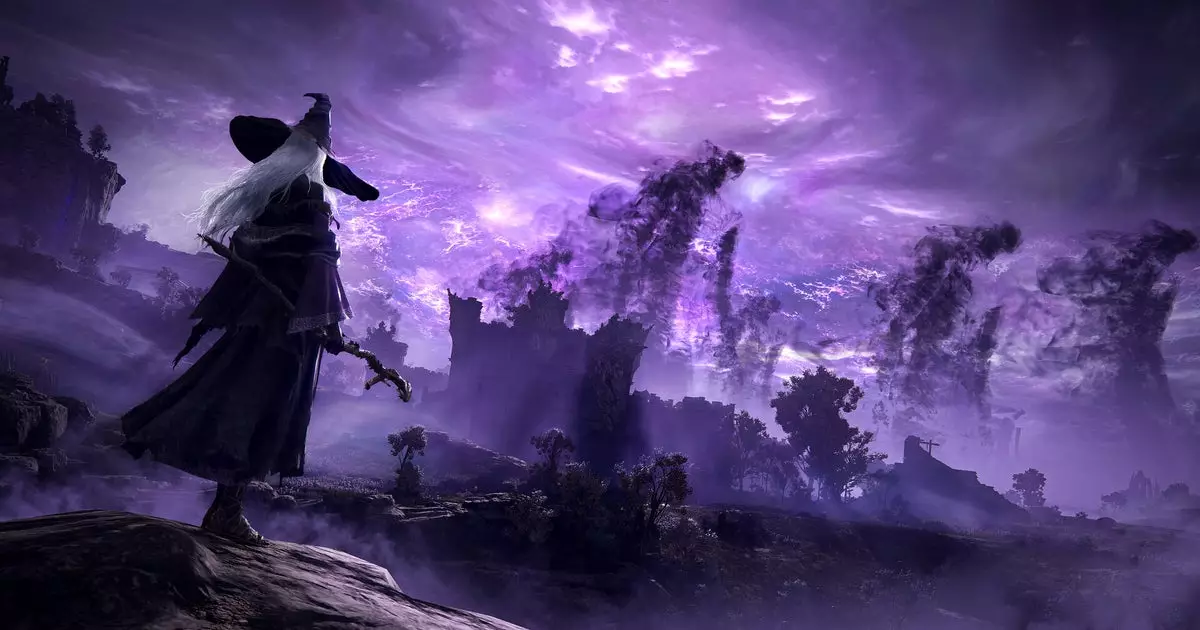FromSoftware, a powerhouse in the gaming industry known for its rich storytelling and complex gameplay mechanics, recently unveiled a new title that has generated mixed reactions among fans. Elden Ring: Nightreign diverges from previous installments by emphasizing cooperative play, leading to some disappointment among those who cherished the solitary exploration of the original. This article explores the mechanics and implications of Nightreign while analyzing its potential impact on the franchise and its community.
Nightreign offers a fresh take on the Elden Ring universe by introducing a co-op-centric design. Players can select from eight preset characters and navigate a parallel version of Limgrave, a well-established area from the original game. The format integrates time constraints, with a daily cycle that lasts fifteen minutes, propelling the narrative forward as players tackle bosses at the end of these cycles. This structure mimics battle royale conventions, incorporating elements of urgency and competition that many players might find exhilarating.
Each gameplay session unfolds over three days, culminating in confrontations with one of eight formidable bosses. However, as night falls, the gameplay area diminishes, compressing the action into a more focused and intense battle arena. The intriguing weather mechanic adds an extra layer of tension, forcing players to strategize their movements and resource management carefully.
What sets Nightreign apart is its unabashed focus on cooperative play. Designed mainly for three-player teams, the game aims to create a balanced experience that neither overwhelms nor leaves players feeling underwhelmed. However, the absence of two-player support raises questions about its accessibility to those who prefer a more intimate gaming experience. For many, the Soulsborne titles have always been about the solitary journey, allowing players to engage with the world at their own pace.
While the game does allow solo play, simplifying enemy mechanics to accommodate this playstyle, there are noticeable limitations. The exclusion of Spirit Ash items and message systems could hinder immersive solo play, elements that have long enriched the exploration in previous games. These features not only foster community interaction but also provide critical context for navigating the environments. Players who choose to venture alone in Nightreign might find themselves at a disadvantage, lacking the usual support that the FromSoftware titles are known for.
The shift to a more structured multiplayer experience signals a departure from the open-ended nature that fans have come to expect. The emphasis on co-op gameplay may alienate dedicated single-player enthusiasts who thrive on the sense of isolation and danger embedded in these worlds. The notion that players must adopt a collaborative mindset to fully appreciate Nightreign could feel like a betrayal to some long-time fans, indicating that the game may be prioritizing group dynamics over individual stories and quests.
Moreover, while game director Junya Ishizaki assures players that Nightreign won’t be a “live service” game, it leaves many questions about the game’s future. The assurance that everything is unlockable upon purchase suggests a well-considered package, yet it raises concerns regarding replayability and the longevity of the experience. If every player gets the same content right out of the gate, will there be enough motivation to return once the novelty wears off?
The introduction of Nightreign presents a pivotal moment for the franchise. FromSoftware has built its name on intricate worlds, often inviting players to delve deep into lore and environment. Will this new, co-op-centric approach influence future titles? Fans are left pondering whether we may see more spin-offs that lean towards multiplayer experiences or if Nightreign will serve as an isolated experiment.
Despite the mixed reactions, Nightreign does signify a daring evolution in game design within the genre. Incorporating elements from battle royales and the rich lore from the Souls series showcases FromSoftware’s willingness to explore uncharted territories. As players engage with this new experience, it will be interesting to observe how the community adapts to these changes.
Ultimately, Elden Ring: Nightreign represents a significant departure from its predecessors, exemplifying both the potential for innovation as well as the risks of straying too far from well-loved formulas. While the game promises a variety of new mechanics and a focused multiplayer experience, dedicated fans are left contemplating what this means for their beloved franchise. As anticipation builds, only time will reveal whether Nightreign will resonate with players or stand as an ambitious but ultimately divisive entry in the FromSoftware canon.

